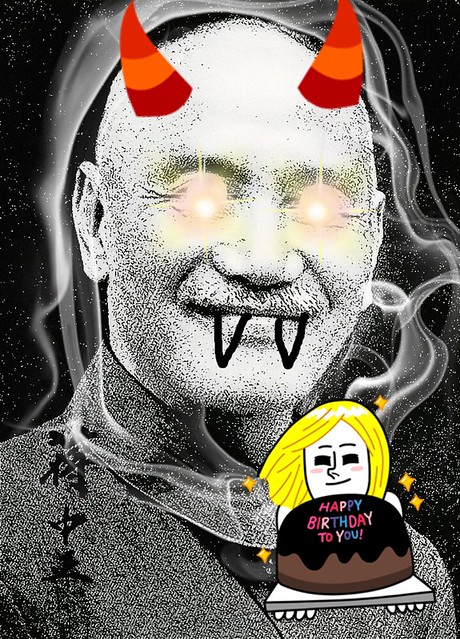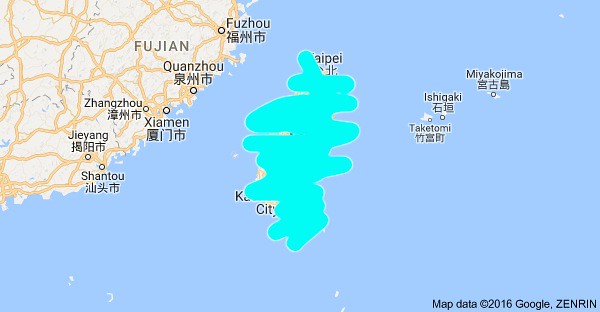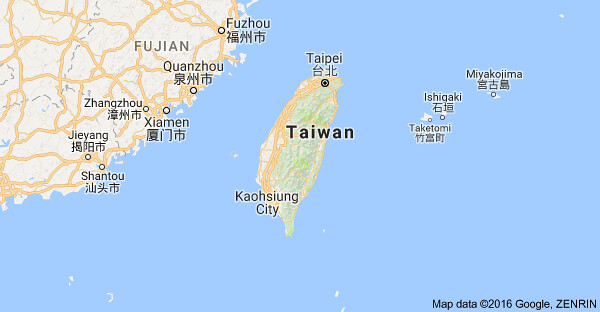It reminds me of a person I met in Lishan. She was the wife of the owner – a youngish (mid-thirties maybe) Vietnamese woman married to an older Taiwanese man with a withered leg. I noticed that she called him “laoban” (boss) – as in, laoban would like to give you some pears. Laoban says breakfast will be ready at 8. Laoban can lend you a portable stove if you want to make tea outside. We were chatting, and I felt comfortable enough to ask her how she liked Taiwan. Her answer was that Lishan was a bit colder than she was used to, especially in winter, and it was hard to get used to living in the mountains. But her husband was kind, she loved her children and it was “better than Vietnam”.
I have not written a lot - anything, really? I can't remember - about this, because I don't have much to say that goes beyond the obvious. At least that's part of it.
Another part is that it's too easy to get shunted into this stereotype in other people's heads of being anti-"foreign bride" (I'm using quotes because I do not think it's the most appropriate term, but it is commonly used and being against it - in this term - is what causes that stereotyping) because you are somehow anti-interracial marriage (I'm not) or anti-immigration (again, not). Certainly a large number of people who express anti-"foreign bride" sentiment are doing so for ridiculous ethnic reasons - "Taiwanese men should marry Taiwanese women", "they're corrupting our culture" and all that. That's stupid and I won't justify it with any more space, but I do want to point out there are other reasons to find the industry problematic.
I'm somewhat against it (check out that hedge, pretty impressive huh?) because it's exploitative - the women often come from families with few or no economic choices, hoping for some financial gain from signing on to be a foreign bride, end up going through brokers who take most of the money and very often end up in abusive situations. Ending up in an unequal situation with a man who expects an 'obedient virgin' is often the best outcome - the worst ones end in running away or death. These women and their families deserve better than to try and improve their lot through these bottom-feeder brokerage firms.
This is not to say that I think all marriage should be based on love or other airy-fairy notions of "finding the right person". That's a privilege I get to enjoy because of my socioeconomic status, but I'm well aware that marriage in the past was almost always an economic alliance between families who were either maneuvering to get ahead or didn't have many choices. I'm also aware that in much of the world this line of thought persists, often because it must. If two people want to form a legal partnership to form a family unit and the main emotional driver is economic rather than romantic, who am I to tell them how they must feel before they are allowed to marry? For this reason I am also not against marriage for immigration purposes - the system in most countries makes it difficult to immigrate otherwise and is often deeply unfair, so when people game the system that's the system's fault, not the people's.
It's just rather obvious in the case of wives being 'selected' from other Asian countries by Taiwanese and Korean men that the woman is hoping for economic betterment that is not likely to come.
I also hesitate to voice another opinion: that men marrying women from abroad because Taiwanese women, thanks to educational and economic empowerment driving modern Taiwanese feminist thought, have in many cases decided not to marry (or want to, but will not marry any dude who expects a 'submissive' wife, will not be treated like the property of her in-laws and will not bear children or give up her career on command and certainly does not intend to remain a virgin for some future husband). It undermines feminism in Taiwan: men's attitudes don't change as quickly when they are not forced to confront the consequences of their misogyny. It also undermines the idea of women's equality everywhere, given how their "brokered" wives are often treated: by the men themselves, by the brokerage firms, by the men's families and by the woman's families in their home countries, too.
Why have I hesitated to say that? Because again, that sort of feminism is something I get to enjoy because of my socioeconomic status. Many if not most Taiwanese women are able to enjoy it too. It is often not, however, an option available to the Vietnamese, Thai, Chinese and other women who come to Taiwan as newly-acquired wives. In some cases, they may even buy into a worldview of obedient wives who care for home, husband and in-laws and dutifully bear and raise children.
And the final part I haven't said a lot about this before is that when I write about something I usually like to have some idea of what the solution might possibly be - whether I suggest it or not. In this case, I don't. No idea. Certainly better information in a variety of languages should be made available online to women in bad situations. I don't even know who to begin to push to fight for the government to budget for the translation of this information from Chinese into Vietnamese, Thai, Indonesian and Tagalog. Certainly more services should be available, and it shouldn't be a huge, uncertain hassle to stay in Taiwan or get help or even find out one has rights if one is in an unhappy or abusive situation. I won't go so far as to say that marriage brokerage firms need to be abolished, though personally I would like to see that happen. But if a woman wants to pursue marriage to a Taiwanese man for economic reasons, I don't want to take away her ability to do so. Heavy regulation in Taiwan doesn't seem to result in much enforcement let alone change, so I simply have no idea.
Of course it's a thorny issue to imply that Taiwanese society would do well to focus on raising its boys to be equality-minded men, if not outright feminists. They should - I'm not shy about saying that because I'm a 'foreigner'. It probably would do a lot to address the issue of Taiwanese women who want to marry staying single because there aren't enough feminist men around that they're willing to marry (and implying any woman should just give up and accept a more traditional role to land a man is offensive: I will not entertain it), and the men who would otherwise marry them. It's thorny because there's an implication that such a change would reduce the number of 'foreign' marriages so Taiwanese men could 'marry their own', which is not what I want to imply at all. I just think everyone deserves a fairer shake.
Whew. How's that for awkwardly stumbling over language to try and express my thoughts on a difficult issue? I hope you enjoyed this Cirque-de-Soleil level of contortion.
Go read the other article. It's better.




